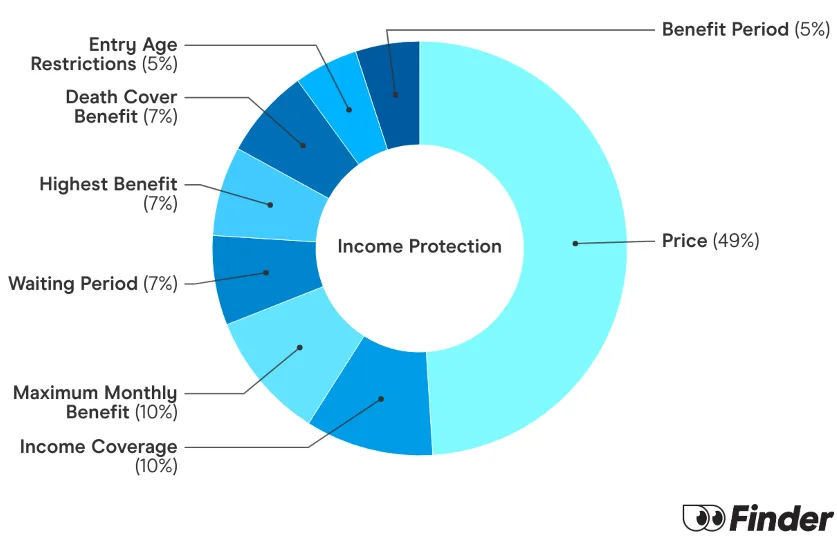Key takeaways
- Agreed value income protection is no longer available in Australia.
- APRA intervened to address some pretty hectic risks it was leading to.
- There are some other options that can help.
Income protection insurance has long been a valuable safety net for Australians, providing financial support in the event of illness or injury. One type of income protection, agreed value, was particularly popular for its guaranteed benefit amount. However, due to industry changes and regulatory interventions, agreed value income protection is no longer available for new policies.
Understanding Agreed Value
With agreed value income protection, policyholders locked in a specific benefit amount when they first purchased the policy. This meant that regardless of any income fluctuations after the initial purchase, the benefit remained fixed. This was particularly attractive to those with variable incomes, such as self-employed individuals or those with commission-based roles.
Regulatory Intervention
In 2020, the Australian Prudential Regulation Authority (APRA) intervened in the life insurance market due to concerns about the sustainability of individual disability income insurance (IDII) policies. APRA identified several issues with agreed value policies, including:
- Moral Hazard: The potential for policyholders to have less motivation to return to work due to the guaranteed benefit.
- Unsustainable Costs: The risk of insurers incurring significant losses if policyholders' incomes declined after purchasing the policy.
- Deviation from the Principle of Indemnity: Agreed value policies could violate the principle of indemnity, where benefits should not exceed economic loss.
APRA's Mandated Changes
To address these concerns, APRA required insurance companies to:
- Cease Offering Agreed Value Policies: New policies must be issued on an indemnity basis.
- Base Cover on Income at Time of Claim: Benefit amounts should be linked to income within the 12 months prior to making a claim.
- Limit Income Replacement Ratios: Benefits should be capped at a certain percentage of earnings.
- Restrict Guaranteed Renewability: Policies should have a shorter guaranteed renewal period.
Impact on Policyholders
The transition from agreed value to indemnity value has significant implications for policyholders. Those with existing agreed value policies have been able to maintain their coverage, but new buyers are limited to indemnity value options.
Key Considerations
When comparing income protection policies, it's essential to evaluate the following factors:
- Benefit Amount: Determine the level of coverage you need to adequately support your lifestyle and financial obligations.
- Waiting Period: Consider the length of time you're willing to wait before benefits begin.
- Benefit Period: Evaluate how long you want the benefits to continue.
- Exclusions and Limitations: Understand any conditions that might affect your eligibility for benefits.
- Premium Costs: Compare premiums from different insurers to find the best value for your needs.
Comparing Income Protection Policies
To find the right income protection policy for you, use our comparison tool to compare quotes from leading insurers. You can also consult with a financial advisor for personalized guidance.
Compare direct brands for income protection
Compare other products
We currently don't have that product, but here are others to consider:
How we picked theseFinder Score - Income Protection
Income Protection is a little complicated and a lot overwhelming. That's why we made the Finder Score, to make it easier to compare Life Insurance products against each other. Our experts analysed over 12 products and gave each one a score rank out of 10.
But a higher score doesn't always mean a product is better for you. Your situation is unique, so your policy choice will be too. Don't think of Finder Score as the final word, but as a good place to start your life insurance comparison.
Speak to an insurance specialist to help you find personalised cover
Sources
Ask a question
More guides on Finder
-
HCF Income Protect Insurance
Wondering if HCF Income Protection Insurance is right for you? We break down what’s covered, what’s not and whether it offers good value.
-
TAL Income Protection Insurance review
Learn the built-in benefits of TAL income protection to understand how it could work for you. Compare features and get a quote today.
-
Sick leave Australia: What you’re entitled to and when
Find out why income protection is an important tool to combine with your entitled sick leave.
-
Cost of income protection in Australia
Income protection costs can range from around $50 to $160+.
-
Sole trader income protection insurance
Income protection for sole traders provides financial support, via a monthly payment, if you’re unable to work due to illness or injury.
-
Income Protection Insurance vs Mortgage Protection
Does income protection provide the same thing as mortgage protection? Read on and compare.
-
Suncorp Income Protection Insurance Review
Receive income cover for illness or injury with Suncorp Income Protection.
-
Income protection insurance calculator
Find out how much your income protection insurance policy will pay out in the event of a claim. Receive quotes for income protection and apply securely.
-
NobleOak Income Protection Insurance review
NobleOak has been offering personal insurance solutions direct to Australians for over 137 years. Discover the benefits and features available on the NobleOak Income Protection policy and make a secure enquiry for cover.
-
Best income protection, Australia
Looking for the best income protection insurance but not exactly sure where to start? Compare the Finder Awards 2025 insurance winners.

